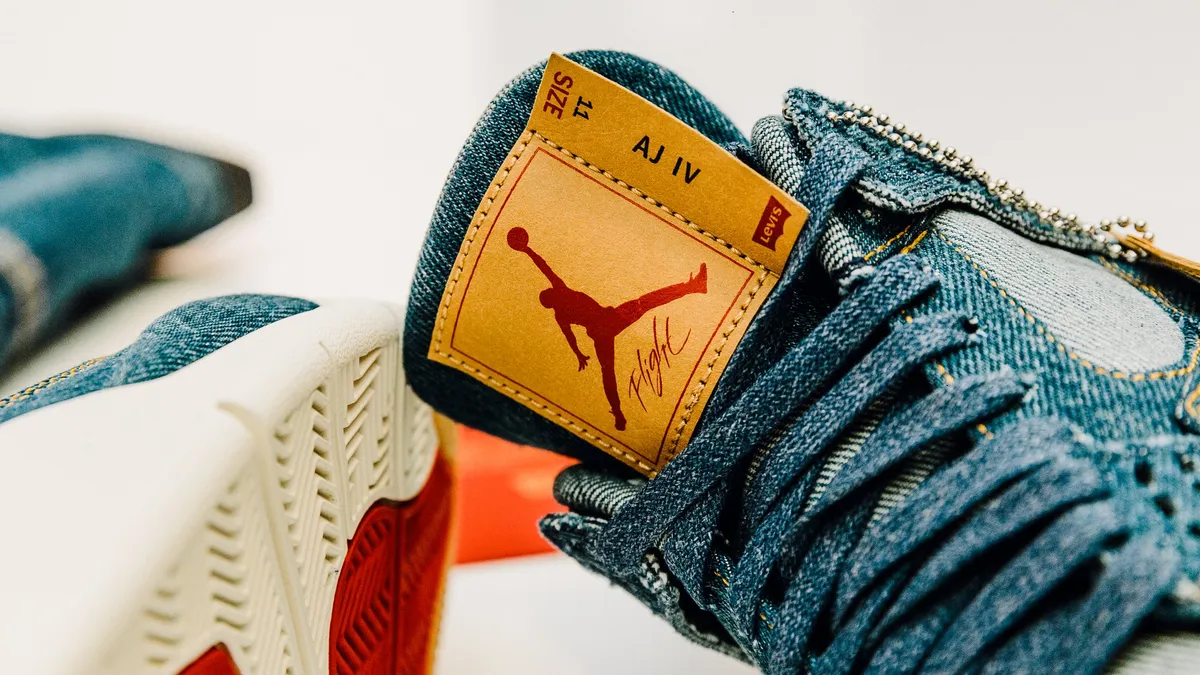NEW YORK — Denim pioneer Levi Strauss & Co. is ramping up its focus on sports marketing as emerging digital and social channels transform how athletes connect with fans, nudging brand sponsors into the category of content producers.
In its hometown in May 2013, the 166-year-old brand scored the naming rights to the San Francisco 49ers' stadium for $220 million. The deal marked Levi's first major push into sports sponsorships and opened fresh opportunities to bring the brand to life, from special gear collections to in-game social videos displayed on scoreboards.
Now, the blue jean giant continues to embrace emerging marketing methods like social media and athletes who have evolved into influencers, experts said on an Advertising Research Foundation panel in New York on Aug. 6.
"With athletes these days, they all want to be on the court playing or they also want to be designers," said Mark Foxton, Levi's head of sports marketing. "There are a number of folks who've reached out to us and asked, 'Can I help design another pair of jeans?'"
Beyond social sway and genuine enthusiasm for the brand, Levi's influencers must demonstrate brand storytelling skills and a shared goal of forming sincere connections with consumers of all ages, Foxton said.
"We look to connect through authenticity, personalization and customization, and platforms that allow us to find original content," he said. "We're not just going out buying social spots. We're looking at getting fans more involved."
Finding 'center of culture' sports moments
Levi's last year sponsored a pop-up experience called "The Drop-Up" created by B/R Kicks, the lifestyle vertical that sports media site Bleacher Report launched in 2016. "The Drop Up" brought together athletes, musicians, influencers and fans to share how the stadium tunnel has become the new men's runway in displaying the latest fashions.
"Players became style icons in their own right — from the sneaker up."

Ed Romaine
Chief brand officer, Bleacher Report
"'The Drop-Up' at its core was anchored in a love for the NBA and NBA style," Ed Romaine, Bleacher Report's chief brand officer, said on the panel. "Players became style icons in their own right — from the sneaker up."
For Levi's, sponsoring "The Drop-Up" was just one puzzle piece in its broader strategy to find "center of culture" moments that sports can power for a mass audience.
"With 'The Drop-Up,' we looked at targeting men, men's styles and influencers," Foxton said. "While the sneakers are driving a lot of what you see on your channels, B/R Kicks and so forth, we have the 'sneaker jean.'"
From athlete to influencer
The transformation of athletes into key tastemakers on social media stems from platforms like Facebook, Instagram and Twitter giving fans a more direct connection to their favorite sports stars than in the past.
The influence of those athletes-turned-influencers contributes to the overall growth of the sports marketing industry, whose North American revenue from sponsorship and merchandising is set to rise 11% from last year to more than $35 billion by 2022, per a PwC forecast.
Fans who follow athletes' social media accounts are often exposed to paid content by brands from categories across automotive, retail, food and beverage and technology. Easy social sharing creates more opportunities for brands to partner with athletes on endorsements, further extending a social campaign's reach.
"Gen Z consumers don't really watch linear TV basketball in the same way they used to. They don't want a full game."

Ed Romaine
Chief brand officer, Bleacher Report
"Because of social media, we understand a lot of different things about players that we didn't understand 10 years ago," Romaine said. "We understand what they're interested in beyond the game."
He cited three-time NBA champion LeBron James and Kevin Love, the all-star player for Cleveland Cavaliers, as two examples of players who have parlayed their stardom into creative and cultural pursuits off the court through social media.
"Twitter and the NBA go hand in hand, more than any other sports league," Omar Ajmeri, Twitter's sports research lead, said on the panel.
The NBA last year was the most tweeted-about sports league, according to Twitter stats cited in The Washington Post. The social network saw more than 100 million NBA-related tweets heading into the 2018 NBA Finals, per the Post.
"Gen Z consumers don't really watch linear TV basketball in the same way they used to. They don't want a full game," Bleacher Report's Romaine said. "There is an interconnectedness and a way to catch people in a multi-modal world and conversing with their friends throughout."






















